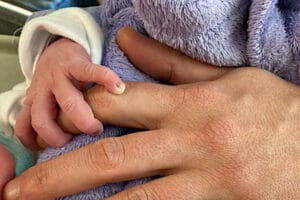Egg retrieval is a surgical procedure that involves collecting eggs from a woman’s ovaries so that they can be fertilized in a laboratory with sperm or to freeze them for future fertilization. Egg retrieval is usually performed under light local anesthesia or general anesthesia. The egg collection procedure is an important step in in vitro fertilization (IVF) and as with any important procedure, tests are carried out in advance to maximize results.
Tests before egg retrieval
Before IVF treatment, your doctor needs to know your blood type and the level of a number of hormones including follicle-stimulating hormones (FSH), LH, prolactin, AMH, TSH and estradiol.
Patients also undergo the ovarian reserve test which checks the quality and quantity of the woman’s eggs using ultrasound.
Egg retrieval medications
For patients undergoing IVF cycles, fertility specialists provide a wide variety of fertility drugs. These drugs are used to stimulate the ovaries by increasing the levels of FSH and LH, which help in the production of several eggs. The age of the woman and the ovarian reserve are two important factors that can change the dose of these drugs. Usually, these hormones are taken for a period of 10 to 14 days.
A vaginal ultrasound examination is performed one week after starting to take these medications to assess the ovaries and determine the follicle count. A follicle is a fluid-filled sac that contains the egg.
The patient’s response to fertility drugs can be assessed by counting follicles and measuring their size, which indicates the maturity of the eggs. These follicles will grow during the treatment (about 3mm in two days) and at some point will be ready for extraction.
The patient will be advised to take an HCG injection 36 hours before the egg retrieval, after the doctor confirms that the follicles are ready for retrieval. It is important to take this medicine at the appointed time.
Egg retrieval procedure
Egg retrieval is a surgical procedure performed during in vitro fertilization (IVF). The procedure involves removing eggs from the woman’s ovaries so that they can be fertilized with sperm in the laboratory. The egg retrieval procedure is usually performed 34 to 36 hours after the woman receives an HCG activation shot that helps ensure mature eggs are ready for retrieval.
In the procedure room/operating room; the anesthesiologist will place an IV into a vein in the arm or hand to administer sedatives to keep you comfortable and pain-free during the procedure. The procedure is performed under general or light anesthesia, so the woman will not feel pain during the procedure.
The removal of the eggs takes about 15-30 minutes, depending on the number of follicles and access to the ovaries. The doctor will use an ultrasound to identify your ovaries and for this test, a very thin, sterile, long needle attached to a catheter will be passed through the vaginal wall and to your ovary to pump your follicles.
The eggs will be pulled out by gentle suction, and collected in test tubes marked with your name and unique identification number, which will then be given to an embryologist (a specialist in the science of egg freezing) who will assess their condition under a microscope.
The number of eggs retrieved during ovulation varies from woman to woman. The average number of eggs retrieved is 10 to 12, but some women retrieve more or fewer eggs.
After the egg collection process is complete, your doctor will check the lining of your vagina and your ovaries, which may bleed a little. In rare cases, it is necessary to use cautery to suppress the bleeding. In this procedure, no stitches are needed, and no scars remain.
Specifically for IVF purposes, the retrieved eggs are then fertilized with sperm in the laboratory to create embryos, after which the embryo is transferred to the woman’s uterus.
How long does recovery from the egg retrieval process take?
The recovery period for egg retrieval is usually short. Most women can return to normal activity within a few days. However, it is important to listen to your body and not over-exert yourself during the recovery period.
After the eggs are removed, the woman will be monitored for a few hours to make sure she is recovering well and she may experience light cramping or bleeding, but this is nothing to worry about. Most women can go home the same day after the eggs are retrieved.
What are the risks of egg retrieval?
This is a safe and routine procedure. However, there are some risks associated with the procedure, such as infection, bleeding, and ovarian hyperstimulation syndrome (OHSS). These risks are rare, but it is important to discuss them with your doctor before performing egg retrieval.
Tammuz Family
We are an international surrogacy, fertility, and egg donation company. For more information, write to info@tammuz.com
This content was created for general educational purposes only and might change with time. Speak to your doctor about any questions you may have regarding a medical condition, as the content here does not replace a care plan as determined by a physician.

























